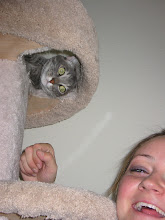Journal # 12
Posted by Melissa Veum
10-29-09
Engl 48A
"If black or red skins or any other skin of color is disgraceful to God, it appears that he has disgraced himself a great deal- for he has made fifteen colored people to one white and placed them here upon this earth (Apess, 1054)."
"I felt convinced that Christ died for all mankind- that age, sect, color, country, or situation make no difference. I felt an assurance that I was included in the plan of redemption with all my brethren (A Son Of The Forest; Apess : wikipedia.com)."
I love this quote and completely agree with the statement Apess is making about the way of God and how it is perceived in the world at this time. Apess talks about how if every skin color other than white is a disgrace to God himself then God has very much so disgraced himself. It is very Christian like to believe that God created all of us and if God himself is disgraced by color, then why did he make so many colored spectrum's of people? I like that Apess talks about all the skin colors not only referencing his own. He talks about the fact that if God does love all individuals, no matter what, then why are people so discriminatory towards something that appears different?
It is a very true statement that "... he has made fifteen colored people to one white..." in which we are all on this planet together, supposed to living as one. Just because some people have "white" faces does not make them superior to other nationalities and does not make it fair for one skin color to "own" and oppress another. I think Apess is saying that God did not make a mistake in this process of "creating" people and individuals, he has put everyone on this planet together for a reason. Why are there so many colored faces and not as many white faces? According to Apess, God did this not to disgrace himself, but on purpose.
